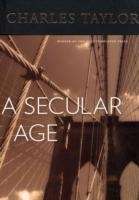A Secular Age

Editorial Harvard University Press
Fecha de edición abril 2010
Idioma inglés
EAN 9780674026766
Libro
Resumen del libro
What does it mean to say that we live in a secular age? Almost everyone would agree that we - in the West, at least - largely do. And clearly the place of religion in our societies has changed profoundly in the last few centuries. In what will be a defining book for our time, Charles Taylor takes up the question of what these changes mean - of what, precisely, happens when a society in which it is virtually impossible not to believe in God becomes one in which faith, even for the staunchest believer, is only one human possibility among others.Taylor, long one of our most insightful thinkers on such questions, offers a historical perspective.
He examines the development in "Western Christendom" of those aspects of modernity which we call secular. What he describes is in fact not a single, continuous transformation, but a series of new departures, in which earlier forms of religious life have been dissolved or destabilized and new ones have been created. As we see here, today's secular world is characterized not by an absence of religion - although in some societies religious belief and practice have markedly declined - but rather by the continuing multiplication of new options, religious, spiritual, and anti-religious, which individuals and groups seize on in order to make sense of their lives and give shape to their spiritual aspirations.What this means for the world - including the new forms of collective religious life it encourages, with their tendency to a mass mobilization that breeds violence - is what Charles Taylor grapples with, in a book as timely as it is timeless.
Biografía del autor
Charles Taylor es profesor emérito de la Universidad McGill. Durante años, formó parte de la junta de Derecho y Filosofía en la Universidad Northwestern y fue profesor de Teoría Política y Social en la Universidad de Oxford. Doctor en Filosofía, destaca por sus contribuciones a los estudios de la Modernidad, el secularismo y la ética en los ámbitos de la filosofía política, la filosofía de las ciencias sociales, la historia de la filosofía y la historia de las ideas.<br> De sus múltiples reconocimientos, cabe recalcar que ha sido receptor de los premios Kioto, Templeton y Ratzinger, entre otros, Compañero de la Orden de Canadá, oficial de la Orden Nacional de Quebec, medalla de oro de la Junta de Investigación de las Ciencias Sociales y Humanidades y ha sido miembro extranjero honorífico de la Academia Estadounidense de las Artes y las Ciencias.<br> Taylor ha dedicado su investigación a entender las concepciones de lo que significa ser humano y cómo formamos nuestras identidades. Se caracteriza por tender puentes entre corrientes a menudo enfrentadas: ilustración y comunitarismo, fe y razón, filosofía y acción política.<br> Es autor de numerosos libros y artículos, entre ellos La ética de la autenticidad, Argumentos filosóficos y Las variedades de la religión hoy, pero su obra maestra es, sin duda, Fuentes del yo.








